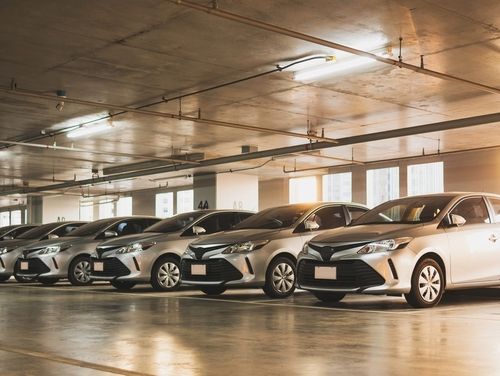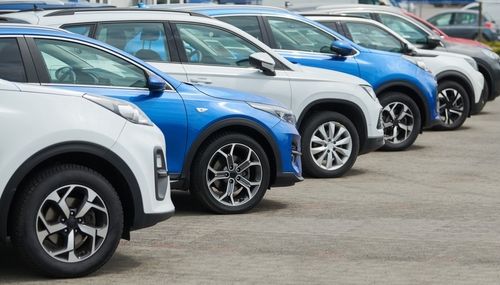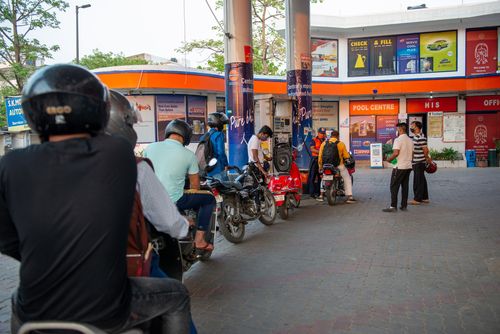What Is Vehicle Insurance and Why Do You Need It
Written by Upstox Desk
Published on July 25, 2025 | 3 min read

India's roads range from crowded city streets to curving mountain roads. India's driving population is even more diverse than its roads. From waving buses to singing trucks, with more than 300 million registered vehicles and growing road traffic year after year, the possibility of accidents, damage, or theft is tangible and costly. Car insurance is not only a compulsory regulation in India; it's a protective cover that guards you against financial and legal hassles.
Whether it's a two-wheeler, four-wheeler, or a commercial vehicle, car insurance prevents unexpected accidents from taking a significant financial toll. For Indian families numbering millions, a car is a big investment, and insurance safeguards that investment.
What Is Vehicle Insurance?
Vehicle or motor insurance is a lawful agreement between the policyholder and the insurer. In India, each vehicle owner is legally obligated under the Motor Vehicles Act, 1988, to have Third-Party Liability Insurance at the very least. This will cover the lawful and fiscal liabilities in the event of injury or damage to another human being or their property caused by your vehicle. There are two primary types of motor insurance policies in India
Third-Party Insurance (Compulsory)
Insures damage or harm inflicted on a third party, such as another person, vehicle, or property. This is the minimum legal requirement for all Indian motor vehicles.
Comprehensive Insurance (Optional but Highly Recommended)
Provides a stronger safety net covering third-party liability and own-damage (OD). It covers theft, fire, robbery, accidents, and even natural calamities such as floods and cyclones.
Add-ons like zero depreciation, engine cover, roadside assistance, and return-to-invoice cover also come with comprehensive covers for increased protection.
Why Vehicle Insurance in India Is Compulsory?
Legal Obligation
The offence of driving without a valid third-party insurance in India is punishable. Violators are liable to pay a fine of ₹2,000 and/or imprisonment for up to 3 months for the first offence. Subsequent offences attract more severe penalties. Insurance helps you stay lawfully compliant on the road.
Safety from Increasing Accident Rates
India possesses one of the highest rates of road accidents in the world. According to the Ministry of Road Transport and Highways, road accidents in 2022 resulted in over 4.6 lakh deaths. Vehicle insurance protects you from the financial consequences of such an event.
Monetary Security Against Theft and Natural Calamities
Thefts of vehicles are frequent, particularly in metropolitan cities like Delhi, Mumbai, and Bengaluru. Additionally, monsoons cause regular flooding, which can result in engine and electrical damage. A full-fledged insurance policy covers you for repair or replacement.
Third-Party Compensation Liability
If your car injures or kills another person or damages public or private property, you are held responsible legally. Without insurance, you would have to pay these expenses, which could amount to lakhs of rupees. Insurance also covers the costs of a lawyer's fees and compensation as ordered by the court.
Access to Cashless Repairs
Most Indian insurers have a network of cashless garages. During an accident or breakdown, you can get your vehicle repaired without making the payment in advance, hence making it more convenient and hassle-free.
No-Claim Bonus (NCB)
Indian insurance companies provide a No-Claim Bonus, which is a discount on premium for each claim-free year. It can be up to 50% for five consecutive years. This reward system not only saves money but also encourages safe driving behavior.
Selecting the Best Insurance Policy in India
While deciding on a motor vehicle insurance policy, keep in mind:
The best insurers in India are ICICI Lombard, Bajaj Allianz, HDFC ERGO, and TATA AIG, all available on Upstox. They all have good claim settlement processes and reasonable premium prices.
Insurance Is a Necessity, Not a Choice
In India, car insurance is more than checking a box; it's about managing your financial health. Whether you're on the crowded roads of Chennai or the hilly streets of Himachal Pradesh veiled in fog, the uncertainty of the road is ever-present. With the proper car insurance, you protect your finances, remain on the right side of the law, and achieve peace of mind.
Each driver or rider has an obligation to themselves and others to be a good driver. Getting insured is where it begins.
Frequently Asked Questions (FAQs)
Is third-party insurance sufficient for my vehicle or motorcycle in India?
Third-party insurance is mandatory as per law, but it does not protect your own vehicle against damage. A comprehensive policy is highly advised for complete protection.
Can I renew my car or motorcycle insurance policy online in India?
Yes. All insurers provide simple online renewals on websites and mobile apps. Early renewal saves you from inspection, fines, and loss of benefits such as NCB.
What if I drive without valid insurance in India?
Driving without insurance is against the law. You could get a fine of up to ₹2,000 or be imprisoned. In case of an accident, you'll have to pay all legal and repair bills yourself.
How is the premium determined in India?
Premiums are determined based on the make and model of the vehicle, its location, its age, the type of policy, and the riders. Own damage and third-party premiums are determined separately.
About Author
Upstox Desk
Upstox Desk
Team of expert writers dedicated to providing insightful and comprehensive coverage on stock markets, economic trends, commodities, business developments, and personal finance. With a passion for delivering valuable information, the team strives to keep readers informed about the latest trends and developments in the financial world.
Read more from UpstoxUpstox is a leading Indian financial services company that offers online trading and investment services in stocks, commodities, currencies, mutual funds, and more. Founded in 2009 and headquartered in Mumbai, Upstox is backed by prominent investors including Ratan Tata, Tiger Global, and Kalaari Capital. It operates under RKSV Securities and is registered with SEBI, NSE, BSE, and other regulatory bodies, ensuring secure and compliant trading experiences.

























